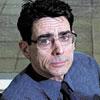
Music
Tenebrae
St John’s Kirk, Perth
Keith Bruce, four stars
THE FAIR city of Perth may now boast one of the finest concert halls in the country and a beautifully refurbished theatre for its annual festival, but for some events the church in the heart of the city that has hosted events since its inception remains beyond compare as the ideal venue.
Nigel Short established the professional chamber choir Tenebrae when he departed from the King’s Singers at the start of the new Millennium, and has been winning acclaim for its performances of four centuries of repertoire since then. This programme tended towards the contemporary end of that time span, loosely pegged on the anniversary of the end of the First World War.
That most clearly applied to the second half of the recital, in which Parry’s six Songs of Farewell were preceded by Holst’s The Evening Watch, composed for the Three Choirs Festival of 1925.
Parry’s work, with its mix of style and timbre, culminating in a setting of Psalm 39, seems to be grappling with the whole question of remembrance in a secular age in a way as we still do today. If its increasingly complex music is attainable by less accomplished choirs, if not with the same finesse, the first half had featured work that was much more of a challenge to sing.
Judith Bingham’s A Walk with Ivor Gurney was premiered by Tenebrae five years ago, and is in some measure a bold excursion into the troubled mind of the earlier composer for whom it is named. His own Since I Believe in God the Father Almighty, which preceded it, is no less demanding, full of radical voicings for its time (also 1925). The Bingham demands careful placing of the sections of the choir in the space, a technique Short deployed throughout to great effect, with hymns of remembrance by Edward Elgar, John Tavener and Herbert Howells completing a programme performed with polish precision by voices from the purest sopranos to the most resonant bass.



Why are you making commenting on The Herald only available to subscribers?
It should have been a safe space for informed debate, somewhere for readers to discuss issues around the biggest stories of the day, but all too often the below the line comments on most websites have become bogged down by off-topic discussions and abuse.
heraldscotland.com is tackling this problem by allowing only subscribers to comment.
We are doing this to improve the experience for our loyal readers and we believe it will reduce the ability of trolls and troublemakers, who occasionally find their way onto our site, to abuse our journalists and readers. We also hope it will help the comments section fulfil its promise as a part of Scotland's conversation with itself.
We are lucky at The Herald. We are read by an informed, educated readership who can add their knowledge and insights to our stories.
That is invaluable.
We are making the subscriber-only change to support our valued readers, who tell us they don't want the site cluttered up with irrelevant comments, untruths and abuse.
In the past, the journalist’s job was to collect and distribute information to the audience. Technology means that readers can shape a discussion. We look forward to hearing from you on heraldscotland.com
Comments & Moderation
Readers’ comments: You are personally liable for the content of any comments you upload to this website, so please act responsibly. We do not pre-moderate or monitor readers’ comments appearing on our websites, but we do post-moderate in response to complaints we receive or otherwise when a potential problem comes to our attention. You can make a complaint by using the ‘report this post’ link . We may then apply our discretion under the user terms to amend or delete comments.
Post moderation is undertaken full-time 9am-6pm on weekdays, and on a part-time basis outwith those hours.
Read the rules here